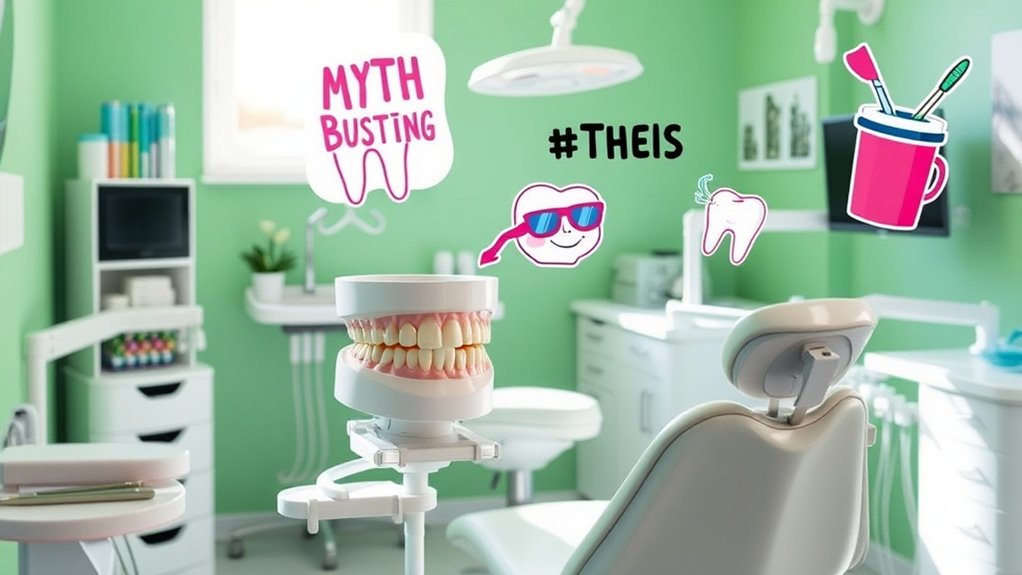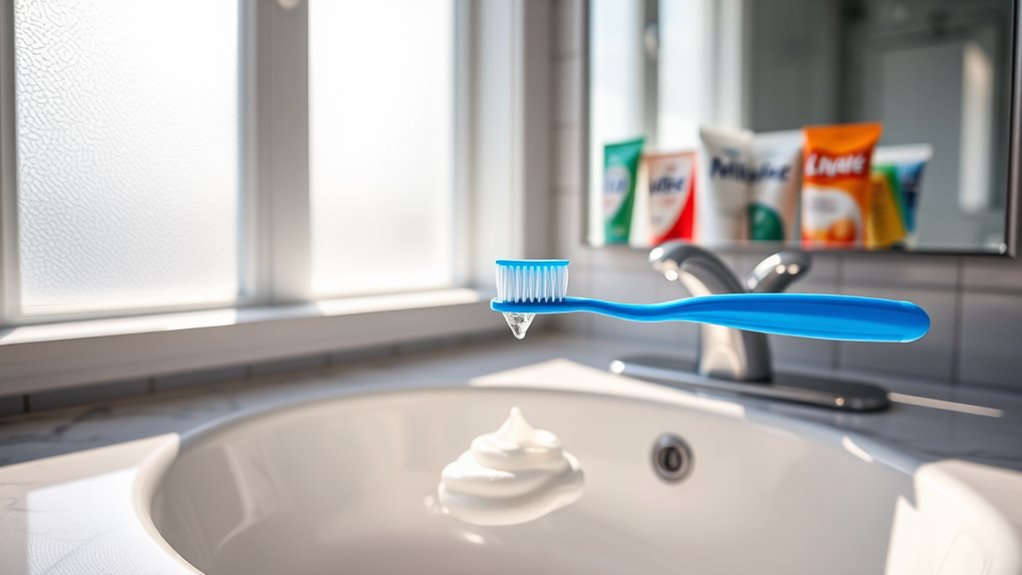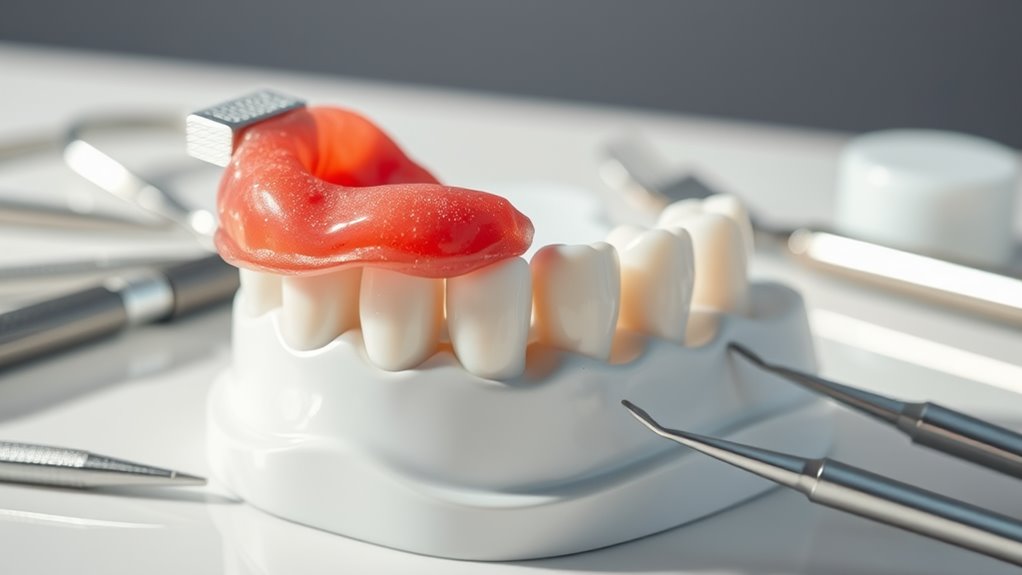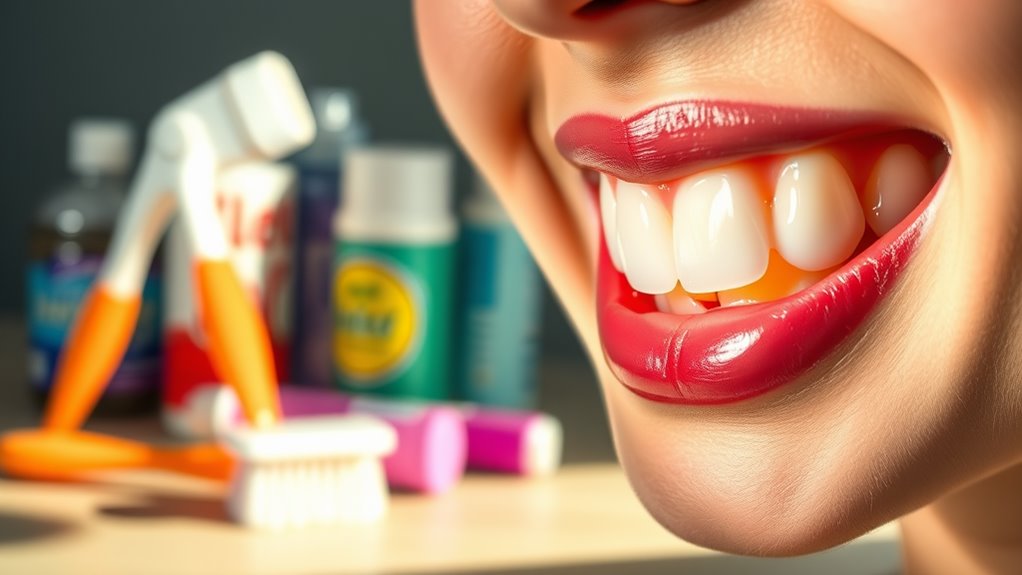Debunking Popular Dental Care Myths
Did you know that brushing harder doesn’t necessarily mean cleaner teeth? In fact, it can damage your enamel and irritate your gums. Many people also mistakenly believe that mouthwash can replace brushing and flossing. Understanding these dental care myths is essential for your oral health. It’s time to uncover the truths behind these common beliefs and improve your dental routine.
Brushing Harder Means Cleaner Teeth
While you might believe that scrubbing your teeth harder leads to a brighter smile, it’s actually doing more harm than good.
Research shows that brushing too aggressively can damage your enamel and irritate your gums. Instead, use a soft-bristled toothbrush and gentle strokes. Gentle brushing techniques can effectively remove plaque without causing injury.
This is one of many dental myths that can mislead you about proper oral hygiene.
Take care of your teeth wisely.
All Teeth Whitening Products Are Safe
Many people assume that all teeth whitening products on the market are safe to use, but this isn’t the case.
Some over-the-counter options contain harsh chemicals that can damage enamel or irritate gums. You should always consult your dentist before starting any whitening treatment.
They can recommend effective products tailored to your needs, ensuring your safety and the health of your teeth. Additionally, understanding the ADA approval of whitening products can help you make informed choices regarding their safety.
Sugar Is the Only Cause of Cavities
Though sugar often gets the most blame for causing cavities, it’s not the sole culprit.
Other factors like acidic foods, improper oral hygiene, and genetic predispositions play significant roles in cavity formation.
Bacteria in your mouth thrive on sugars and acids, producing harmful acids that damage tooth enamel. Regular dental check-ups are essential for early detection and intervention of dental issues.
To maintain dental health, focus on a balanced diet and consistent oral care habits.
You Only Need to See a Dentist When You Have a Problem
Seeing a dentist only when you have a problem may seem convenient, but it can lead to more significant issues down the line.
Regular check-ups help you:
- Detect cavities early
- Monitor gum health
- Identify oral cancer signs
- Prevent costly treatments
Additionally, regular visits contribute to better overall health, allowing for early detection of other potential systemic health issues.
Mouthwash Replaces Brushing and Flossing
While mouthwash can be a helpful addition to your oral hygiene routine, it doesn’t replace the fundamental practices of brushing and flossing.
Brushing removes plaque from tooth surfaces, while flossing cleans between teeth where brushes can’t reach.
Relying solely on mouthwash may give a false sense of cleanliness and neglect essential care, leading to gum disease and cavities.
Prioritize brushing and flossing first. Additionally, dentists emphasize that mouthwash should be used as a supplement to brushing and flossing, not as a substitute for these essential practices, to optimize dental health.




